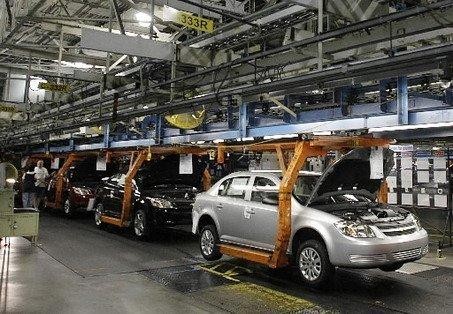(VOV) - The current global economic crisis has unearthed a host of challenges that Vietnamese enterprises are struggling to deal with. But this also offers a variety of opportunities to Vietnamese to reinvent themselves by restructuring their businesses. VOV has more….
 |
| Toyota offers a lesson on business restructuring. It has been fumbling about excessive restructuring plans while ignoring its available advantages and departing from its core business philosophy. (Photo: dunghangviet.vn) |
Many international organizations and experts all agree that from now until the end of this year and next year, the economic picture in Vietnam and around the globe remains gloomy. In Vietnam, the most obvious evidence is the increasing number of enterprises that have declared bankruptcy, gone into liquidation, or temporarily stopped operations. In July alone, 30,000 companies were reported to be in a similar circumstance. Economists say that Vietnamese businesses need to speed up their restructuring process to survive. Pham Ngoc Hung, Vice President of Ho Chi Minh City’s Business Association, says ‘In the current crisis, it’s essential to help enterprises establish which way their business is oriented as this crisis possesses both risks and opportunities. We should fully tap into the positive advantages and draw up better development strategies.’
Experts say that restructuring can’t be fulfilled in one day but requires a process whereby weaknesses should be overcome by improving personnel recruitment and training, reducing cumbersome procedures, and formalities. Restructuring must also involve well-prepared strategies and be soundly administered. The biggest pressure on restructuring now is the economic recession and financial downturn that has led to a decline in consumer demand. Professor Douglas Coulter, professor of business management at the prestigious US University of Harvard, says a business restructuring plan should mean a comprehensive reform of a company, ranging from the production process, to technology, finance, and personnel. Douglas says ‘the decision is within the organization. Determine where in your organization these key decisions should happen; organize the macro structure around the source of value as SKF did; find out what level of authority decision makers need; align other element of your organization such as incentives, information flow with the elements related to decision and then help a manager to develop the skills and behavior, necessary to mark an executive decisions quickly and well’.
At present, many enterprises have relied upon short-term loans to deal with temporary capital difficulties during their initial period of operations, but haven’t taken into account their medium and long term plans. 75% of Vietnamese small and medium- sized enterprises do this and commercial banks have been asked to streamline procedures so enterprises can access loans to carry out their restructuring plans. Pham Hong Hai, Deputy Director General of the Hong Kong and Shanghai Bank in Vietnam, says ‘For businesses, it’s a good chance to self reform instead of doing nothing and relying Government’s assistance. In reality, businesses must reconsider their loans and debts, and decide which areas are to their advantage, to avoid pouring money away. The commercial banks really want to help companies overcome the current hardships, but what they need from enterprises is financial transparency.’
Business restructuring is a must, but there is not a common blueprint for all. Depending on each production model, each product, and which business environment, enterprises will recognize which areas need changed be they related to finance or personnel.